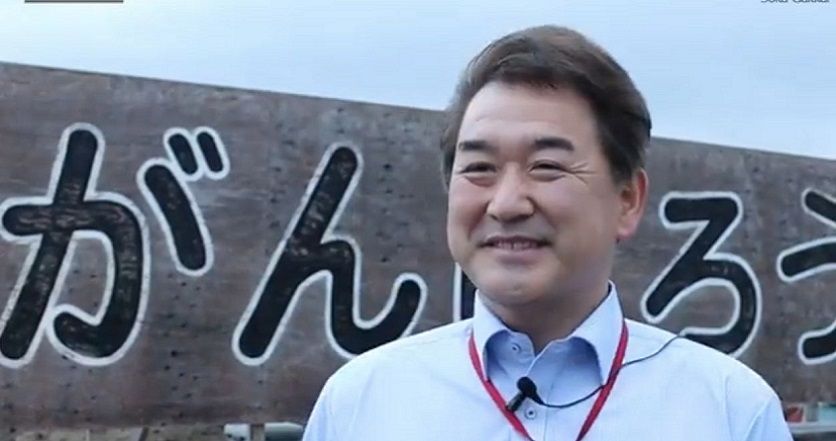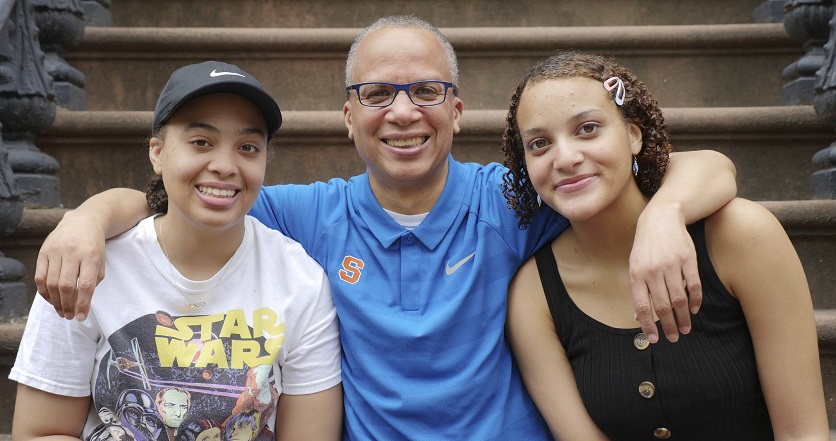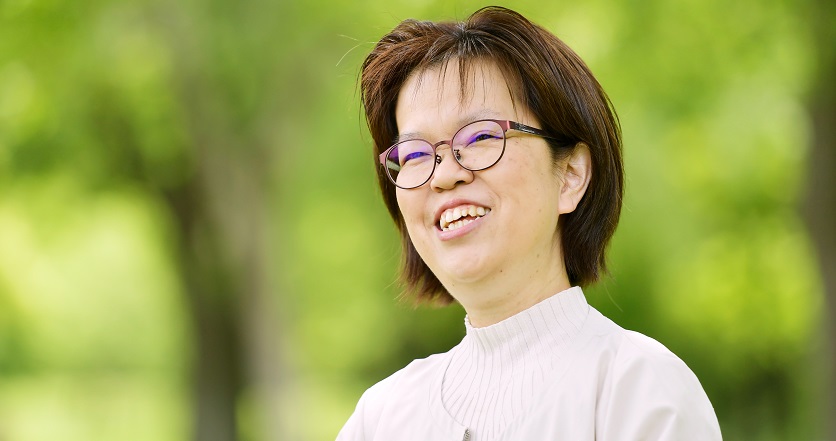Determination and Transformation After Losing My Sister
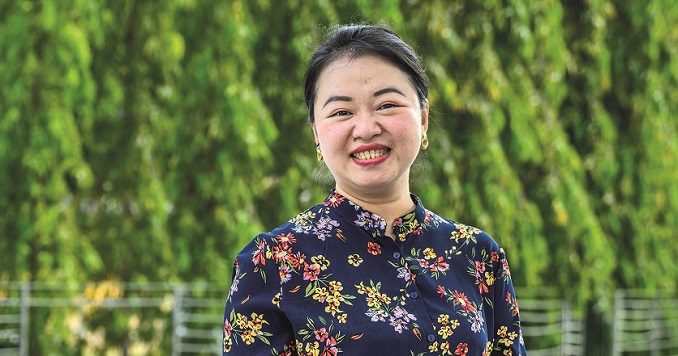
Szi Hean’s relationship with her family had been distant ever since she was a child. But, after the tragic loss of her younger sister and in the midst of grieving, she resolved to stop avoiding her family responsibilities and to build harmony at home, beginning with changing herself.
A Sudden and Devastating Change
In 2017, my siblings and I planned our very first overseas trip with our parents, to Japan. However, just 10 days before departure, my beloved younger sister, on whom I relied the most, suddenly passed away.
The pain we felt was indescribable, no words could capture the despair we felt on hearing the news. The overwhelming grief left us in unbearable agony.
Standing in front of my sister’s casket, my heart was filled with anger—angry at her for leaving us and angry at myself for failing to save her from depression in time.
After her funeral, youth members of the Soka Gakkai came to my home every day, rain or shine, to chant Nam-myoho-renge-kyo with me and my family. During those agonizing days, I was extremely grateful for their warm companionship and encouragement.
After many heartfelt discussions, our family chose to continue with our trip to Japan. On my sister’s birthday, we joined a prayer meeting in Tokyo along with other visiting members and there, we prayed for her eternal happiness. I also made a firm determination—I would ensure the happiness of our entire family on behalf of my sister because I knew that this would have been what she would have wanted deep down.
Where the Distance Began
In 1988, when I was three years old, my father moved our family of five to a wooden house in a village about 17 kilometers away, where he opened a motorcycle repair shop. My father struggled to make a profit. One day, a friend introduced him to Nichiren Buddhism and the Soka Gakkai. From then on, our family embraced the practice, and our financial situation gradually improved.
However, the 1997 financial crisis caused a major downturn in my father’s business. To make matters worse, developers reclaimed the land where our house stood, forcing us to move.
I remember the day when bulldozers arrived at our doorstep. My parents, along with dozens of other residents, were arrested for protesting. During these difficult times, our local Soka Gakkai community supported our family tremendously.
Though I was grateful for my parents’ efforts, our family rarely communicated with each other.
My mother took on multiple cleaning jobs, working tirelessly to earn a living. My parents frequently argued over finances.
Though I was grateful for my parents’ efforts, our family rarely communicated with each other. As I grew older, I disliked being at home and would hide in my room whenever I was home.
After graduating from high school, I started working in the mornings and studying at night school, using it as an excuse to avoid spending time with my family. Once I started working full-time, I felt that giving my mother some money each month was enough to fulfill my duty as a daughter—I rarely concerned myself with household matters. At that time, my relationship with my parents felt more like that of a landlord and tenant.
I was afraid to make decisions and avoided taking responsibility for mistakes.
Although I had an older sister, a younger sister and two younger brothers, I never took on the responsibilities of being the second-eldest sister.
This didn’t change even after my eldest sister went to work in Singapore, no matter what happened, my younger sister was always the first person I turned to—she handled almost everything in the family. She took care of me in so many ways.
Looking back, I realized that I lacked confidence—I was afraid to make decisions and avoided taking responsibility for mistakes. I always pushed family matters onto either my elder sister or my younger sister instead of dealing with them myself.
The Beginning of Change
After my younger sister passed away, I knew I had to change. However, the patterns of interaction within my family that had been established over the years could not be transformed overnight.
Upon returning from Japan, reality set in—the unbearable pain of losing my sister continued to haunt our family.
President Daisaku Ikeda once said, “Losing a beloved family member is indeed a sad and painful event. Though we may understand it . . . it takes time for our feelings, our emotions, to accept the reality. People need different amounts of time to come to terms with the death of a loved one. The Daishonin [Nichiren] teaches that we should chant Nam-myoho-renge-kyo as much as we possibly can for the deceased.”
I didn’t know where to begin. I began by earnestly praying each morning and evening.
This quote encouraged me to chant seriously every day. My parents also gradually accepted the pain of losing their daughter, continuing to chant day after day.
I have always been passive by nature, and this was reflected in my Buddhist practice. In the past, my younger sister had always encouraged and supported me in my practice—she was also the one I confided in.
Since I had made the determination to care for my family just as my sister had, I had to become as strong as she was. But I didn’t know where to begin. I began by earnestly praying each morning and evening. I also began learning to manage family affairs.
I had always avoided facing her, unsure how to interact with her.
The process of change was not easy—I struggled to adapt to life without my sister. Whenever something troubled me, I would cry alone in my room, constantly thinking, “If only my sister were still here.”
The biggest challenge was my relationship with my mother, who also suffered from depression and often lost control of her emotions and acted unreasonably. In the past, I had always avoided facing her, unsure how to interact with her.
Unable to cope with her unpredictable emotional outbursts, I often argued with her. When I couldn’t understand her struggles, I would get frustrated and feel like she was using depression as an excuse for her emotional outbursts. Once, I even blurted out in anger, “Just because you’re unwell, does that mean you can be unreasonable? Does being sick mean you can do whatever you want?”
The Sun Rising in My Heart
Despite my efforts to change, our family situation did not improve—in fact, during the pandemic, things worsened. In March 2021, my mother had a severe emotional breakdown, and I had no choice but to call the police to take her to the hospital.
Watching my mother being taken away was so painful that I could not put it into words. I felt utterly helpless, unable to do anything for her.
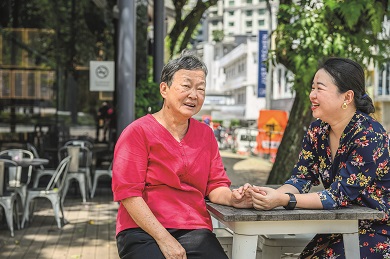
At the hospital, I stayed with her the entire time. In her state of distress, she lost control and hurled harsh words at me, scolding me relentlessly. But incredibly, I felt no anger at all. I also didn’t feel shame as the neighbors watched my mother being taken away, as she was my mother, and she was truly ill.
Once again, as our family faced a difficult time, Soka Gakkai members came to encourage me. I chanted even more seriously, reflecting deeply on everything I was going through. I made a firm determination that creating a harmonious family must start with my own human revolution, with my own inner change.
As long as the sun rises, darkness will disappear.
President Ikeda says: “How can we achieve family harmony, which represents world peace in miniature? First, we ourselves must strive to be a bright, sunny presence in our homes, enfolding all our family members in the light of compassion.”
I read this repeatedly and encouraged myself to be the sun: As long as the sun rises, darkness will disappear. I must continue to grow and become the light of hope for my family.
As the pandemic worsened, the hospital was unable to keep up my mother’s inpatient treatment, so I brought her back home. I found myself becoming more understanding and accepting of her condition. I began making specific changes in my daily life.
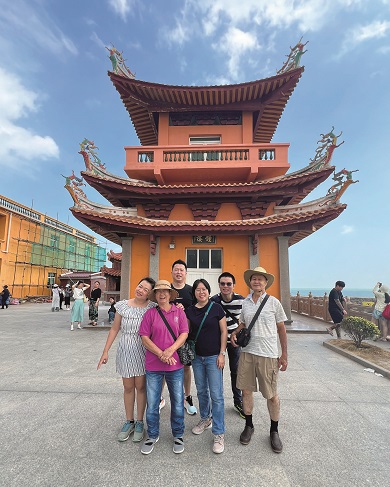
For example, in the past, I would leave for work without saying a word but instead I started making a point to cheerfully say goodbye to my mother every morning. At night, instead of hiding in my room as I used to, I would deliberately sit with her to watch TV and have casual conversations. I also started hugging her from time to time.
Although we still argue occasionally, my younger brothers always step in to mediate and lighten the mood.
In the years since my sister’s passing, through dedicated chanting and active participation in Soka Gakkai activities, along with the constant encouragement of senior members, I have learned to face my own weaknesses and challenges head-on.
Most importantly, I no longer fear making decisions—I have gained the courage and sense of responsibility to accept the consequences of my choices.
I am determined to become a trustworthy, dependable young person—someone who brings hope to others.
Adapted from an article in the January 2025 issue of Cosmic, Soka Gakkai Malaysia.





